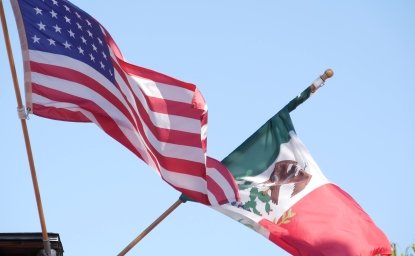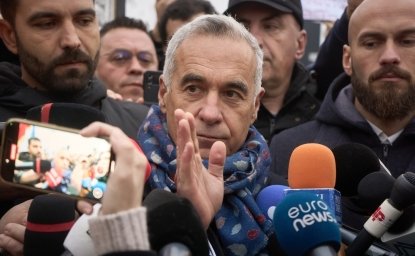Call for Applications: 2020 Ion Ratiu Democracy Fellowship
Applications are now being accepted for the 2020 Ion Ratiu Democracy Fellowship. The deadline to apply is 15 May, 2019
Applications are now being accepted for the 2020 Ion Ratiu Democracy Fellowship. The deadline to apply is 15 May, 2019
Building on the accomplishments of the Ion Ratiu Democracy Award (2005-2016), the Ion Ratiu Democracy Fellowship (IRDF) supports individuals around the world who are working on behalf of democracy as activists or intellectuals, whether they are in exile from repressive regimes or operating within emerging democracies.
Recipients of the Ion Ratiu Democracy Fellowship will have an opportunity to engage with the Washington policy, media and scholarly communities, but also to find time for reflection and writing on democratic activism often not possible in the day-to-day struggle in their home/exile country. In this sense the IRDF will seek to replicate the type of life-changing experience that Ion Ratiu encountered as a young Romanian democracy activist in in Washington in the 1970s and 1980s.
While pursuing their own projects during their time at the Wilson Center, Fellows are expected to hold public lectures on the themes of democracy and democratic activism while conducting research on a specific project. In addition, Fellows will actively participate in discussions with the public policy and academic communities, including giving speeches and lectures at other institutions and taking part in meetings and conferences. Fellows are encouraged to publish their findings in long or short form through the Wilson Center multi-media portals.
The IRDF is supported by the Ratiu Family Charitable Foundation, established in 1979. The Foundation aims to further education and research in Romanian culture and history, and to stimulate and support civil society in its understanding and application of democracy and democratic principles worldwide.
The IRDF will be hosted by the Woodrow Wilson International Center for Scholars which aims to unite the world of ideas to the world of policy by supporting pre-eminent scholarship and linking that scholarship to issues of concern to officials in Washington.
Fellowship Details
The Ion Ratiu Democracy Fellowship provides awardees with a stipend to spend from one to three months at the Wilson Center. Under the terms of the grant, the IRDF offers a monthly stipend of $5,000. Fellows are required to be in residence at the Wilson Center in Washington, D.C. for the duration of their grant.
Each fellow is assigned a furnished work space available to him or her every day around the clock. The Center is located in the heart of Washington, D.C., and includes conference rooms, a reference library, and a dining room. Fellows will also be provided a research assistant (intern) to support their research activities.
Eligibility
The IRDF aims at thoughtful activists and engaged thinkers. Applicants with outstanding capability and experience from a wide variety of backgrounds (including government, journalism, the professions, NGOs, and academia) are eligible for appointment.
Citizens or permanent residents from any country (applicants from countries outside the United States must hold a valid passport and be able to obtain a J-1 visa even if they are currently in the United States). English proficiency as the Center is designed to encourage the exchange of ideas among its fellows
Conditions of Fellowship
Fellows must devote full time to the fellowship project and may not accept a teaching assignment, another residential fellowship, or undertake any other major activities that require absence from the Center during the tenure of their fellowship. In order to foster a true community of fellows at the Center, fellows must devote a proportionate amount of time to the daily life of the Center. Applicants must notify the Center when they receive other sources of support, including other fellowships or foundation grants, which may affect their request for financial support from the Center. Once fellowships are awarded and at the Center’s (or fellow’s) discretion, project titles may be modified to reflect the Center’s mandate to serve as a bridge between the world of learning and public policy. Fellows are expected to provide a final report within one month of the end of their fellowship assessing their experience in Washington.
Application Materials
Both nominations and self-applications are welcome.
A complete application/nomination package must include the following:
Selection
Selection will be based on the merit of the proposed objectives and activities and the applicant’s qualifications and experience. It involves a peer-review process guided by an advisory board composed of former Ratiu Awardees and Fellows and members of and advisers to the Ratiu Foundation. Successful applicants proceed to a second round of selection, which may include a phone or in-person interview.
Send completed applications to IonRatiu-Award@wilsoncenter.org
The deadline to apply is 15 May, 2019

The Global Europe Program is focused on Europe’s capabilities, and how it engages on critical global issues. We investigate European approaches to critical global issues. We examine Europe’s relations with Russia and Eurasia, China and the Indo-Pacific, the Middle East and Africa. Our initiatives include “Ukraine in Europe”—an examination of what it will take to make Ukraine’s European future a reality. But we also examine the role of NATO, the European Union and the OSCE, Europe’s energy security, transatlantic trade disputes, and challenges to democracy. The Global Europe Program’s staff, scholars-in-residence, and Global Fellows participate in seminars, policy study groups, and international conferences to provide analytical recommendations to policy makers and the media. Read more



